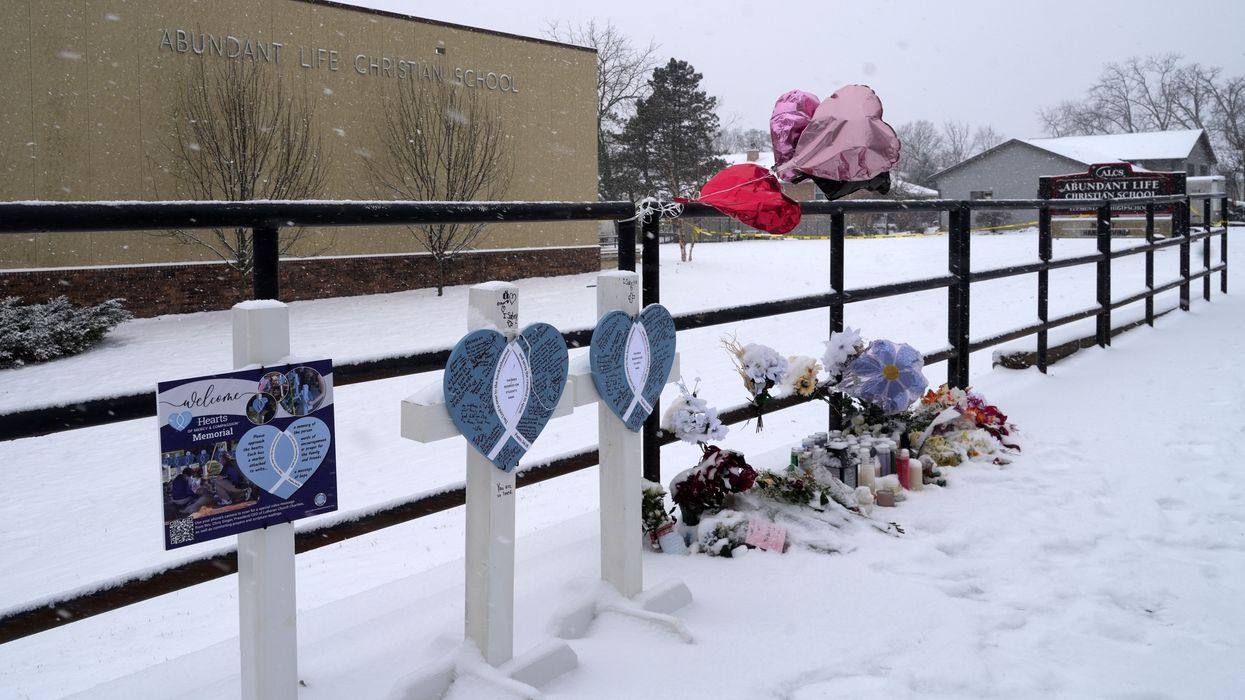In the lingering aftermath of the tragic shooting at Abundant Life Christian School in Madison, Wisconsin, where a 15-year-old student's actions claimed two precious lives and wounded six others, we find ourselves once again gathered at the altar of our collective grief. As a pastor and parent, my heart breaks not just for the lives lost but for a generation of children who have come to know active shooter drills as routinely as they know their morning prayers.
The question echoes through our sanctuaries and school hallways: Why? Why do such terrible things happen to good people? Why must our children bear witness to such darkness? Rabbi Harold Kushner, in his profound wrestling with human suffering, reminds us that "God does not cause our misfortunes. Some are caused by bad luck, bad people cause some, and some are simply an inevitable consequence of our being human and being mortal." Yet this theological framework, while offering some comfort, cannot fully salve the wounds of a community torn apart by violence.
People of faith must confront uncomfortable truths like: Our prayers, while essential, must be paired with urgent action. The haunting statistics tell us that gun-related incidents on school grounds in 2024 surpassed the total from 2023. Each number represents not just a statistic but also a child of God, a bearer of divine image and an unfinished story. We cannot afford to wait any longer.
Christian scriptures remind of Jesus weeping at Lazarus's tomb in times likened to these. The prophet of antiquity didn't just offer platitudes or tertiary-level theological explanations — Jesus entered fully into the grief of the moment. Today, we, too, ought to allow ourselves to weep, lament and cry out in holy anger at the continued sacrifice of our children on the altar of political inaction. Yet we cannot remain in our grief. As interfaith leaders and concerned citizens, we are called to act. Here are three ways we can respond with both faith and practical wisdom:
Create sacred spaces for healing. Build intentional spaces in our houses of worship, schools and community centers where young people can express their fears and anxieties without judgment. This means training our spiritual leaders, teachers and counselors in trauma-informed care that honors emotional and spiritual needs and partnering with mental health professionals to offer free or low-cost counseling services through our faith communities.
Engage in holy disruption. We must move beyond thoughts and prayers to prophetic action. Form interfaith coalitions to advocate for sensible gun legislation and increased mental health resources in schools. With 12 children dying from gun violence each day in America, our silence is no longer an option. Write to legislators, organize peaceful demonstrations and use our pulpits to speak truth to power.
Build beloved community. Strengthen the bonds between our faith communities, schools and families. Create mentorship programs pairing youth with caring adults who can provide guidance and support. Establish regular interfaith gatherings that foster understanding and connection across religious and cultural boundaries. When young people feel truly seen and valued by their community, they are less likely to turn to violence.
To our young people: Your fear is valid. Your anger is understood. Your grief is holy. We see you, and we stand with you. Know that your faith communities are not just buildings where we gather once a week but living sanctuaries where you can bring your whole selves — your questions, doubts, pain and hope.
To parents and educators: Remember that you're not alone in these challenging times. Draw strength from your faith traditions, but don't hesitate to seek help. Create space in your homes and classrooms for difficult conversations about violence, fear and hope.
As we progress from this tragedy, remember that while we cannot always prevent bad things from happening to good people, we can choose how we respond. We can turn our pain into purpose, our grief into action and our faith into tangible change. In the words of the prophet Isaiah, "And a little child shall lead them." It's time we listen to our children's cries for safety and peace and respond not just with prayers but with the full measure of our moral courage and collective action.
May the Divine Presence comfort all who mourn, heal those wounded and grant us all the wisdom and strength to build a world worthy of our children's trust.
Johnson is a United Methodist pastor, the author of "Holding Up Your Corner: Talking About Race in Your Community" and program director for the Bridge Alliance, which houses The Fulcrum.




















